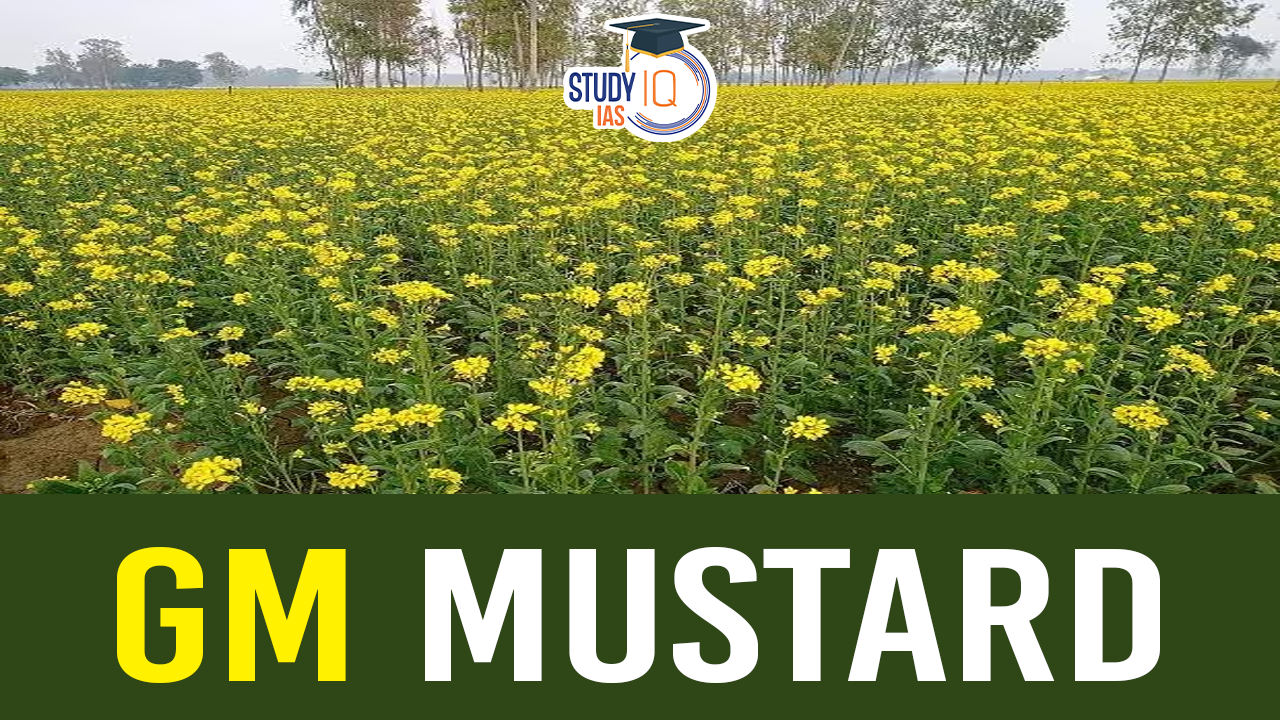Table of Contents
Context: The Supreme Court ruled against approval of the commercial sale and release of genetically modified mustard in India.
DMH-11- A Genetically Modified Mustard
- Dhara Mustard Hybrid-11 (DMH-11) is a domestically developed transgenic mustard known as a Herbicide Tolerant (HT) variant.
- This hybrid results from crossbreeding the Indian mustard variety ‘Varuna’ with the East European variety ‘Early Heera-2’.
- Created by: Delhi University’s Centre for Genetic Manipulation of Crop Plants (CGMCP), National Dairy Development Board (NDDB) and the Department of Biotechnology.
- Incorporated: Two foreign genes, ‘barnase’ and ‘barstar’, sourced from the soil bacterium Bacillus amyloliquefaciens, which facilitate the creation of high-yielding commercial mustard hybrids.
- DMH-11 has demonstrated a yield increase of about 28% over the national check and 37% over the zonal checks, and its usage has received approval from the Genetic Engineering Appraisal Committee (GEAC).
- The “Bar gene” is crucial for maintaining the genetic integrity of the hybrid seed.
|
Facts |
|
About GM Mustard
Genetically Modified Mustard (GM Mustard) refers to a genetically engineered variety of mustard developed to be resistant to herbicides and to enhance yields.
- Purpose: GM Mustard was developed primarily to increase mustard seed yields in India, which is one of the largest producers of mustard globally.
- Genetic Modification: The genetic modification involves introducing genes that confer resistance to herbicides (specifically, the glufosinate-ammonium herbicide). This allows farmers to use herbicides to control weeds without affecting the mustard crop.
- Developer: The GM Mustard variety in India was developed by a team of scientists at the Delhi University, led by Dr. Deepak Pental. It underwent field trials and evaluations for several years before seeking regulatory approval.
Regulatory Status in India
- Approval Process: GM Mustard underwent rigorous regulatory scrutiny in India by various agencies including the Genetic Engineering Appraisal Committee (GEAC) and the Ministry of Environment, Forest and Climate Change.
- Approval Status: In 2017, the Indian government considered approving the commercial cultivation of GM Mustard but ultimately deferred the decision due to public outcry and protests.
- Current Status: As of my last update, GM Mustard is not commercially cultivated in India. The debate over its approval continues, with proponents citing potential benefits for farmers and opponents highlighting concerns over environmental and health impacts.


 India’s Road Safety Crisis: Engineerin...
India’s Road Safety Crisis: Engineerin...
 A Decade of Startup India: Transforming ...
A Decade of Startup India: Transforming ...
 Berkeley Earth Annual Temperature Report...
Berkeley Earth Annual Temperature Report...

























